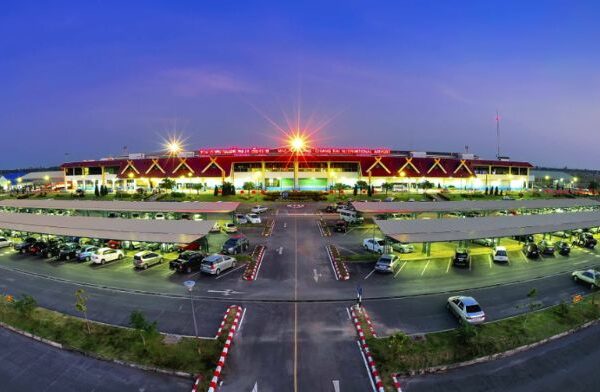

Safeguarding air connectivity
Speaking at the reception, which was held in Brussels on Tuesday 24 January, Kerkloh warned “the risks of a ‘no deal scenario’ are real – and for now, we still remain completely in the dark as to what will happen at the end of the transition. One thing is pretty clear though – the political dynamics shaping these negotiations are very much at odds with business interests.”
ACI Europe has repeatedly stressed over the past 20 months the need to safeguard air connectivity in Europe by maintaining a liberal aviation regime between the UK and the EU.
“Anything more restrictive than the current Single Aviation Market regime will come at a cost,” Kerkloh stressed before suggesting that “European aviation could end up facing a reduction in passenger traffic of up to 30 million by 2026 and consumers losing up to €4.7 billion in welfare. This would in turn mean the loss of up to €8 billion in GDP.”
To underline its concerns about the impact of Brexit on Europe’s aviation industry, the board of ACI Europe also met with EC Task Force 50 (the group established by the European Commission to prepare and conduct negotiations with the UK on the country’s departure from the EU) on Wednesday 24 January to reiterate these risks.
Kerkloh was however keen to stress that Europe’s airports had welcomed the news that European leaders have reached an agreement on the first phase of Brexit negotiations.
“As airports, we are of course relieved that the UK and the EU have reached an agreement on the first phase of the negotiations,” he said. “We are also very supportive of a transition ensuring the status quo: this is indispensable to ensure business continuity and relieve time pressure.”
Beyond Brexit
Admitting that we are in a better position now than at the beginning of 2017, Kerkloh also stated that beyond Brexit the good news is that air traffic keeps defying geopolitical risks and 2017 was a record year for passenger traffic.
He cited an “expanding economy and contained oil prices, as well as new consumer behaviours, digitalisation and the growing prominence of ultra-mobile millennials” as the reasons for this growth. He also suggested that ACI Europe anticipates passenger traffic at Europe’s airports to more than double by 2040 – growth prospects that only confirm the strategic relevance of aviation for European economies.
Along with Open Skies agreements, Kerkloh also declared that Europe will need to invest more in airport capacity and efficiency to avoid congestion.
Airport charges
On the matter of airport charges, ACI Europe highlighted the new market dynamics that are redefining airport-airline relationships and resulting in increasing airport competition. The growth in low-fare carriers expanding at primary airports and developing long-haul offerings were cited as one of the drivers of airport competition, as was airline consolidation.
“These developments need to be at the core of the commission’s evaluation of the EU Airport Charges Directive,” said Kerkloh questioning whether new EU rules on airport charges are needed.
Concluding his speech, Kerkloh emphasised that the business interests of all airports no matter what their size revolve around developing connectivity and providing quality saying: “We work in the interest of our communities – whose economy relies on the same connectivity.”





